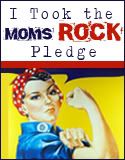Advisers Tell the Agency to Lower Over-the-Counter Dose of Popular Pain Drug
The FDA should put new restrictions on acetaminophen, an advisory committee recommended Tuesday, saying the move would protect people from the potential toxicity that can cause liver failure and even death.
The FDA does not have to follow its advisory committees’ recommendations, but it usually does. It will likely be months before the FDA makes a final decision on the drug.
You might not know "acetaminophen," because that's the drug's generic name. One of the nation’s top drugs for pain relief, acetaminophen is found in many over-the-counter products -- including Tylenol, aspirin-free Anacin, Excedrin, and numerous cold medicines. It's also found in many prescription drugs.
Billions of doses of acetaminophen are used safely every year. But acetaminophen-related overdoses cause 56,000 emergency room visits, 26,000 hospitalizations, and 458 deaths annually, according to studies done between 1990 and 1998.
Some people inadvertently take more than is recommended. Others -- such as people with underlying liver disease -- are more at risk of liver injury from acetaminophen use. Because acetaminophen is in so many products, people sometimes take two or more products containing acetaminophen without realizing it. That risk extends to children, who may be poisoned because they swallow the medication. Sometimes caregivers mistakenly give children too much acetaminophen.
Acetaminophen: Limiting Dosage Amounts
The advisory committee voted that the single adult acetaminophen dose should be no more than 650 milligrams, significantly less that the current 1,000 milligrams often contained in two tablets of certain over-the-counter pain products. The panel of 37 doctors and other experts also said that the maximum total dose for 24 hours, now at 4,000 milligrams, should be decreased.
Some advisory committee members said the move should help lower the overall amounts of acetaminophen that people take. Some on the panel said they were influenced by research indicating there are changes in liver function in some people who had taken only the currently recommended levels.
Call to Eliminate Some Acetaminophen Products
In a recommendation that would be a real change for the prescription industry, the committee voted 20 to 17 that prescription products that combine acetaminophen with other medications should be eliminated. Today, billions of doses of products are prescribed in which acetaminophen is combined with narcotics, according to the FDA. Some brand-name pain prescriptions containing acetaminophen include Vicodin, Lortab, Maxidone, Norco, Zydone, Tylenol with codeine, Percocet, Endocet, and Darvocet.
The combination of hydrocodone and acetaminophen, for instance, has been the most frequently dispensed drug since 1997, according to the FDA.
Richard DeNisco, MD, MPH, medical officer at the National Institute of Drug Abuse and a panel member, said that so much acetaminophen is going out to people in hydrocodone/acetaminophen mixes that he is uncertain why there is not more liver damage.
Prohibiting these combined products “would rock the system,” he said, but the two products should be prescribed separately, if necessary.
The combination prescription products, which have rapidly increased in use in the last five years, are clearly the biggest cause of the acetaminophen overdose, said Marie Griffin, MD, professor of preventive medicine at Vanderbilt University. But she worried that people will simply turn to plain narcotics, if the combinations are eliminated. “We need a broader answer to chronic pain, because these drugs are being used extensively in the older population," Griffin said during the meeting. "And I am not sure that practitioners feel like they have many other choices.”
On the other hand, the committee declined to vote for eliminating combination acetaminophen products that are sold over the counter.
Karl Lorenz, MD, who is with the VA Los Angeles Healthcare System, said that many people are being creative in managing low level chronic pain. “I just think we have to be cautious about eliminating an entire category of products that many people find useful,” he said.
Black Box Warning Advised for Acetaminophen Combination Products
The advisory committee also voted overwhelmingly to recommend that the FDA require a boxed warning -- often called a black box warning -- on the labels of prescription acetaminophen combination products, with members noting this is considered the highest precaution the agency can give.
They also called for limiting formulations of liquid over-the-counter acetaminophen to only one concentration level in order to reduce confusion when people give the medicine to children.
Linda Suydam, president of the Consumer Healthcare Products Association, which represents companies that make over-the-counter products, objected to the committee’s recommendations for new limits on acetaminophen in over-the-counter products.
“CHPA strongly believes that patients and physicians need to have a wide range of dosing available for patients who need their acetaminophen-containing products,” she said, asserting there is little data to support the idea that patients are harmed at current levels.
Wednesday, July 1, 2009
FDA May Restrict Acetaminophen
Posted by Lagean Ellis at Wednesday, July 01, 2009
Subscribe to:
Post Comments (Atom)




























3 comments:
The key is OVERDOSE... I feel sorry for the Tylenol industry and others that sell acetaminophen in their products.
Yes, we need to KNOW what the side effects are ---but I still wonder why the media and the FDA are jumping to conclusions---which may even put Tylenol and others totally out of business.
Bet the Ibuprofen industry and the NSAID induestry LOVES hearing this. I'm a Tylenol person --and have always been. BUT--since I don't abuse it or take it much at all, I'm not going to worry.
Just my opinion.
Hugs,
Betsy
I am a chronic pain patient, and this news is lunacy on the FDA's part. Wy on earth would they even consider banning prescription meds that can be controlled MORE than the over the counter meds. I am one of those responsible pastients, and there are many, who signed a narcotics contract, only get my nmeds from one pharmacy and one doctor, pee in the cup, whatever they want, so I csn get my pain meds so I can function and live some sort of "normal" life. There are many meds I cannot take, and this is going to put a crunch on the other pain meds and drug companies, if these are taken off the market. I take Vicodin, and have taken it for 6 yrs. I get my liver enzymes checked every 3 months. My liver enzymes were eklevated once, and I stopped taking Alleve for the break through pain, and the liver enzymes went back to normal. I have only had one abnormal result out of all the endless blood tests. There has got to be a better way than this. The FDA makes it sound like the general public are idiots and that we are nnot able to think for ourselves. The many are going to pay for the mistakes of the few, if this ban goes through. Write your congressman! They just passed the Compassionate Pain Act last year. Let;s make someone stick to it.
Hoppin in to say hi, hope you had a wonderful weekend!
Post a Comment